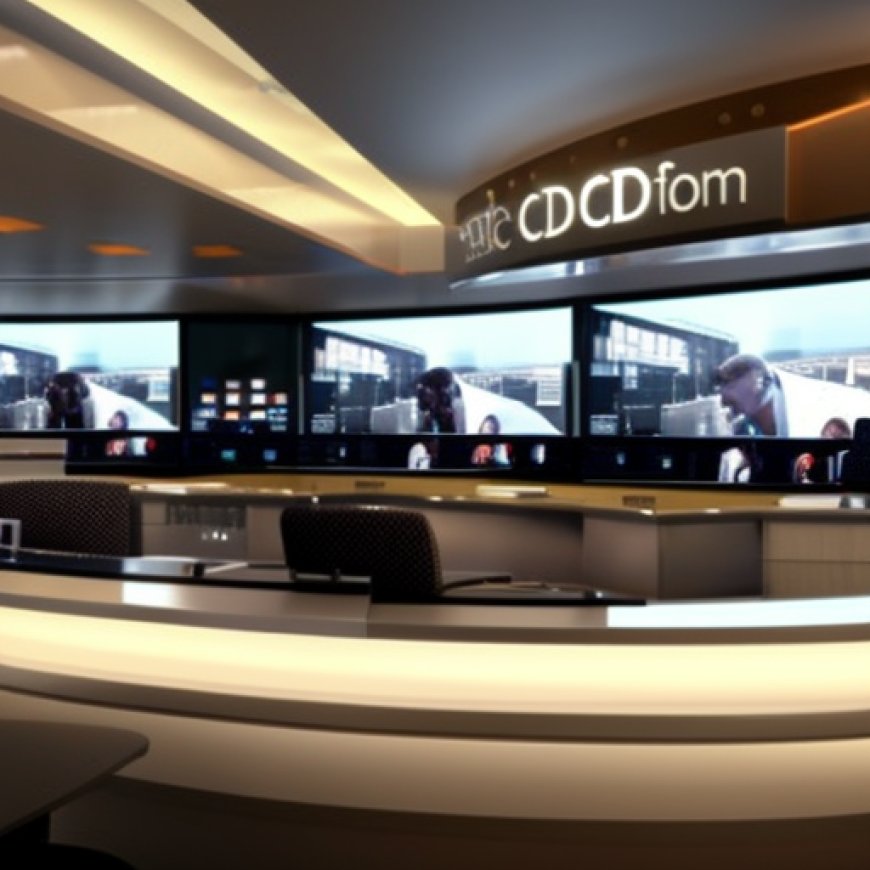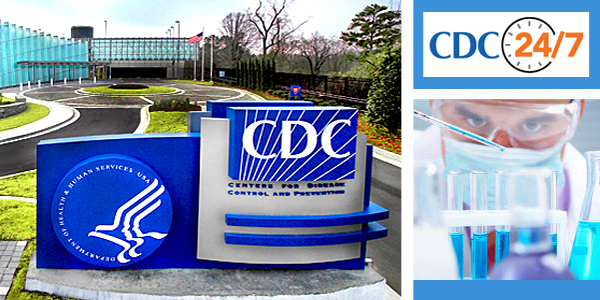CDC Newsroom
Annual Report to the Nation Part 2: New cancer diagnoses fell ... CDC


New Diagnoses of Major Cancers Declined During COVID-19 Pandemic

According to part 2 of the latest Annual Report to the Nation on the Status of Cancer, new diagnoses of six major cancer types in the United States significantly decreased in early 2020, coinciding with the start of the COVID-19 pandemic. The volume of pathology reports also declined during this time, indicating a decrease in cancer screenings and other cancer-related procedures. These findings suggest that many cancers were not being diagnosed promptly due to interruptions in medical care.
Sustainable Development Goals (SDGs)
- Goal 3: Good Health and Well-being
- Goal 10: Reduced Inequalities
Monica M. Bertagnolli, M.D., director of the National Cancer Institute (NCI), expressed concern about the missed opportunities for early cancer detection, especially for vulnerable populations facing barriers to accessing cancer care. She emphasized the urgency of expanding cancer screening access and awareness, which is a key priority of the Biden-Harris administration’s Cancer Moonshot initiative.
This study, published in Cancer, is the largest to date using population-based data to assess the impact of the COVID-19 pandemic on cancer incidence in the United States.
The Annual Report to the Nation on the Status of Cancer
The Annual Report to the Nation on the Status of Cancer is a collaborative effort among the National Cancer Institute (NCI), the Centers for Disease Control and Prevention (CDC), the American Cancer Society, and the North American Association of Central Cancer Registries. Its purpose is to provide information about cancer occurrence and trends in the United States. Part 1 of the latest report, which focused on national cancer statistics, was released in October 2022.
Impact of COVID-19 on Cancer Diagnoses
Part 2 of the latest report examines changes in cancer diagnoses in the United States during the first year of the COVID-19 pandemic. The authors attribute these changes, in part, to interruptions in medical care. They found a decline in cancer screenings and delays in diagnoses made as a result of early symptoms or routine medical visits.
The authors analyzed cancer incidence data from 2015 to 2020 using data from select population-based cancer registries. They compared the number of newly diagnosed cases in 2020 with previous years and also examined the volume of electronic pathology reports sent to central cancer registries.
Findings
From March to May 2020, new cases of all six cancer types declined significantly. However, by July 2020, diagnoses of all cancer types except prostate cancer had returned to pre-pandemic levels. The volume of electronic pathology reports also declined during the same period but returned to pre-pandemic levels. This suggests that the decrease in new cancer diagnoses was not due to reporting delays but rather missed screenings and delays in other cancer-related procedures.
The authors also observed that new cases of early-stage cancers declined more sharply than new cases of advanced cancers for each cancer type studied. The largest declines were seen in cancers typically diagnosed through screening, such as female breast, lung, and colorectal cancer. For example, there was a potential 16% decrease in early-stage colorectal cancer cases that went undiagnosed in 2020.
Impact on Different Populations
Asian or Pacific Islander populations experienced greater declines in new cases of all cancer types, except for pancreatic cancer, compared to White, Black, and American Indian or Alaska Native populations. Additionally, there was a greater decline in prostate cancer diagnoses among White people compared to Black people.
The authors acknowledged that the data analyzed may not be representative of the entire U.S. population and did not include in-depth analyses on cancer diagnoses in Hispanic populations. However, the findings highlight the missed opportunities for early cancer detection during the pandemic and the need to address barriers to preventive care visits and reduce disparities in early detection.
Efforts to Address the Impact
The Biden-Harris administration’s Cancer Moonshot initiative aims to address the impact of the pandemic on cancer screening. They have called for action to make up for the nearly 10 million missed screenings in the United States. The initiative has already accelerated innovations in cancer prevention, detection, and treatment and expanded access to cancer screening across all states, territories, and Tribal organizations.
Lisa C. Richardson, M.D., M.P.H., director of CDC’s Division of Cancer Prevention and Control, emphasized the importance of getting back into routine health care, including cancer screening. She also highlighted the need for vaccinations to prevent infections that can lead to cancer.
Future Research
Further research is ongoing to gain additional insights into the impacts of the pandemic on cancer trends. Betsy A. Kohler, M.P.H., executive director of the North American Association of Central Cancer Registries, stated that more in-depth analysis of the full 2020 data is being conducted to better understand the implications of the pandemic on cancer outcomes.
Conclusion
The decline in new cancer diagnoses during the COVID-19 pandemic raises concerns about delayed detection and its potential long-term consequences. Efforts to address this issue should focus on removing barriers to preventive care visits and reducing disparities in early detection. By prioritizing cancer screening and awareness, it is possible to catch cancer early and improve outcomes.
Sources:
- Part 2 of the Annual Report to the Nation on the Status of Cancer
- Part 1 of the Annual Report to the Nation on the Status of Cancer
- cdc.gov

Join us, as fellow seekers of change, on a transformative journey at https://sdgtalks.ai/welcome, where you can become a member and actively contribute to shaping a brighter future.







